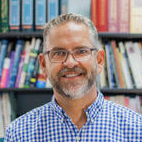She wrote to me exasperated, looking for some clarity.* It was two weeks ago or so, and her church staff was in a panic about Sunday worship. Their area had just gone into a shelter-in-place order, and she – as associate pastor – was handling many of the “dirty details,” as she put it:
“Chuck, my lead pastor just asked me to go out and buy the video and audio equipment we need. He said that he needed time to think and process, and also didn’t want to be exposed because of his young kids. I was speechless. I have 3 young ones myself! But this kind of thing happens time and again. And I always feel guilty for questioning his judgment. He’s been in ministry 12 years, and I’ve only been a pastor for a few.”
She and I had communicated about a year before, talking about needs she desired to express to him and boundaries she hoped to set. But a fast-spreading virus was amping up everyone’s anxiety, and she felt obliged to be her pastor’s “errand girl,” as she put it, even despite their identical ecclesial credentials and shared preaching responsibilities. This is how narcissism is coming to church during a pandemic.
Another story. After two Sundays, the lead pastor communicates broadly to his staff and leadership teams:
“Friends in Christ: COVID-19 has given us a Gospel opportunity. Our views for the last two weeks are well above our weekly attendance, and we need to capitalize on this momentum. I’m going to be creating more content – I think people really need to see me right now. The Lord is using me as a source of comfort and peace.”
This, too, is how narcissism is coming to church during a pandemic.
A friend texts me: “I’ve heard about Covert Narcissism. Is there a thing called Covid Narcissism?”
Anxiety always exasperates our sinful and self-centered patterns of relating, and a global pandemic is no exception.
Many of you know I released a book about narcissism two weeks ago, and in it I talk about my own narcissistic traits. I could feel them surfacing around the book launch which was inconveniently situated (based on my own self-interest) around state shelter-in-place orders and school closings and toilet paper binge-buying. I could feel my own buzzing anxiety manifesting in quiet cries of “don’t forget about me” and “why did a pandemic have to get in the way of my narcissism book launch?” Can you feel the irony?
Another pastor friend and I talked in the midst of it. His own ongoing therapeutic and spiritual direction work allowed him to be a calm presence to me. I needed it. After he gave me space to rant, I asked him about his own pastoral vocation in this season. He said, “We’ll figure out the virtual thing. I’m not entirely worried about that. It’ll probably be pretty rough at first. But we’ve got a community of anxious and under-employed folks, small business owners and hourly-wage earners. I have a community of people who need a pastor. It’s my job to show up in whatever way I can.”
I thought to myself – “He is a member of the resistance, a follower in the humble way of Jesus in an anxious time.” His calm, centered presence invited me to show up, to do business with my own self-protection and lean into the discomfort of a hurting world.
Narcissism is ultimately a self-protective strategy. And if we’re honest, we’re all implicated. No, that doesn’t mean you’ve got a diagnosable personality disorder. It just means that if we’re not self-aware and self-regulated amidst anxiety, we’ll double down on default patterns of anxious relating which only create more chaos and conflict.
As I’ve re-engaged some tried and true contemplative and meditative Christian practices this week and dialed down my own anxiety, I find myself asking a larger question: What is my vocation in this season? And I add to that the question: To whom do I belong? You see, when I’m stuck on the reactive hamster wheel of self-protective, narcissistic self-interest, I’m laser-focused on what I’m losing, missing, and deprived of, and anxiously grasping for the fruit of the most convenient tree within reach – usually one that gives me some sense of power, control, and relevance. When I can relax into the secure arms of God as one who is beloved and seen, I can offer something deeper, originating from a calm center where Christ dwells. I long for the latter, but too often default to the former. What about you?
Sadly, when I’m anxiously grasping, I don’t see you. I don’t see my neighbor. I don’t see the person right before me who I’m hurting.
In this season of need, let’s do whatever inner work we need to do to wake up to our own patterns of self-centeredness, not merely for own sake but for the sake of whoever needs the humble self-giving presence of Jesus in this moment, whether weary families and friends, hurting communities, exhausted medical professionals, the anxiously un-or-under-employed, victims of abuse, addicts, or leaders called to make difficult decisions in an unprecedented time.
Of all times, this is a moment to deal with a pandemic that was here long before and will be with us long after – our Genesis 3 legacy of narcissism, which undermines the humble witness of Jesus through a church meant to be an agent of healing and reconciliation in the world.
*As a personal policy, I change details and conflate events from different stories to protect identities and confidential communications.


